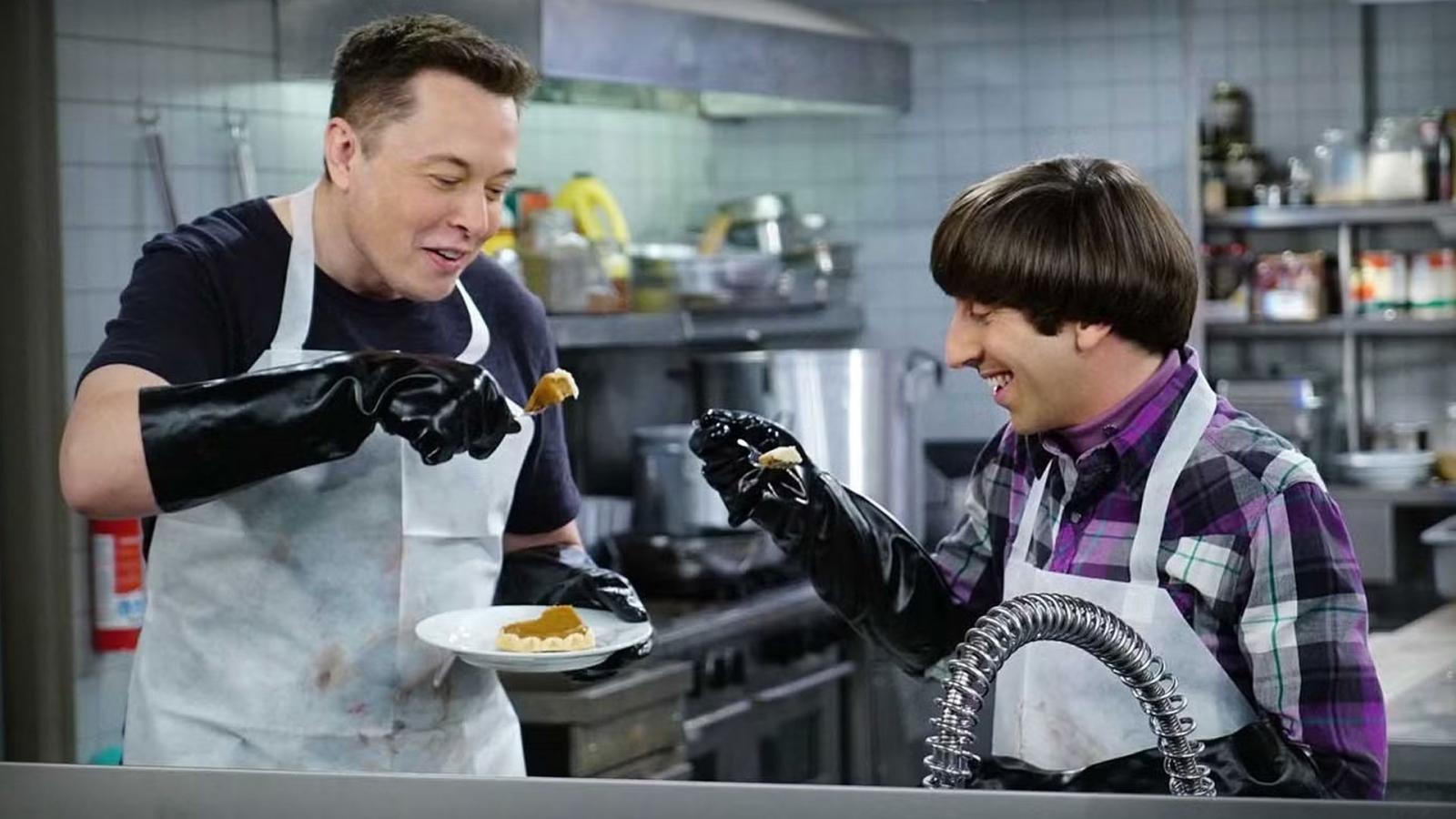Elon Musk's Big Bang Cameo Is Even Worse Now

When The Big Bang Theory aired its Thanksgiving episode "The Platonic Permutation" in 2015, it delivered what was then framed as a wholesome surprise: Elon Musk, billionaire tech genius and self-styled savior of humanity, scrubbing dishes in a soup kitchen and swapping turkey-day banter with Howard Wolowitz.
At the time, this was seen as a quirky celebrity cameo—proof that Musk wasn't just rich, he was relatable.
Fast forward to 2025, and that same cameo now plays like a bad joke.
Musk's scene was short but meticulously engineered:
– He wears an apron.
– He jokes about being "demoted for being too generous with the gravy."
– Howard fangirls, gushing about Mars and possibly being adopted by Musk.
– Cue laugh track.

The audience was meant to see Musk as charming and down-to-earth. Instead, we now get the uneasy feeling we're watching a sitcom trying way too hard to manufacture sincerity.
Back then, Musk was still riding the high of public goodwill. He was the clean energy guy. The Mars guy. The guy whose name got whispered next to Tony Stark. Today? Not so much. His public persona has taken a nosedive thanks to:
- Unfiltered political rants
- Erratic behavior on social media
- Hostile treatment of critics and employees
- Conspiracy-laced posts and meme-fueled chaos
- A slow-motion implosion of Twitter—sorry, X
That warm, family-sitcom moment of him serving food to the homeless now lands like a punchline. Not because volunteering is bad, but because the person doing it onscreen feels unrecognizable from the one dominating headlines now.
Reddit threads like "This really didn't age well, did it?" have become digital dumping grounds for viewer complaints.
One user wrote, "Elon Musk volunteering to help others is absolutely not a thing," while another commented, "We all know what his actual views are a decade later." Some even accused him of buying his way onto the show, calling the cameo "crass," "unsubtle," and "redefining vile."
Even at the time, critics weren't fully convinced. The episode painted a glossy, Disneyland version of Musk—funny, self-deprecating, kind—despite little real-world evidence to support it. Now, nearly ten years later, the gap between that PR-friendly image and the man shouting at journalists on social media is wider than ever.
Rewatching the episode now feels like opening a time capsule sealed in corporate optimism and nerd wish-fulfillment. Musk was supposed to represent the future of science and tech. Instead, he's become a cautionary tale about how fast public figures can burn through goodwill when they mistake attention for admiration.
The Big Bang Theory is still streaming on Max. Just don't be surprised if you hit "skip forward" when the soup kitchen scene starts.